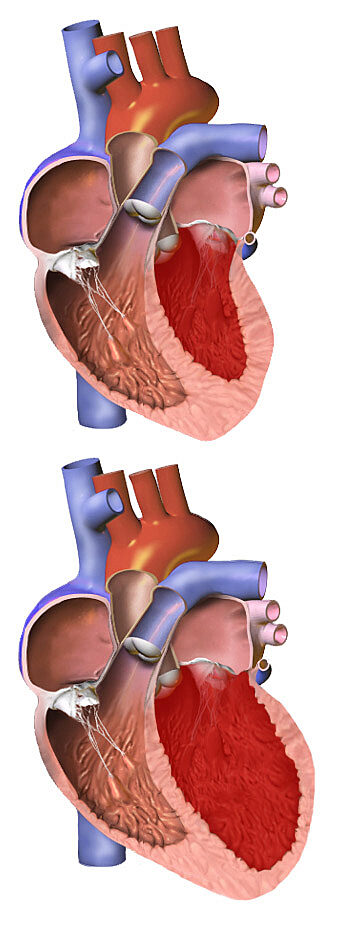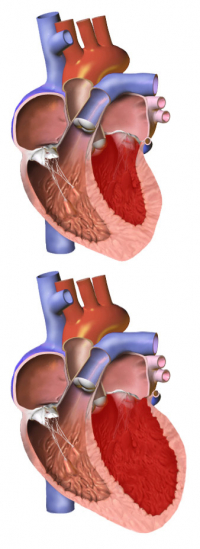UF Health first to place kidney-assist device that might help patients with congestive heart failure


University of Florida Health researchers recently became the first to temporarily implant a new device in a patient with congestive heart failure, a procedure that one day could help physicians manage this potentially deadly condition.
Physicians in the UF College of Medicine’s department of urology and division of cardiovascular medicine performed the first-in-human use of the JuxtaFlow® renal negative pressure treatment device in April after enrolling the first patient in a clinical trial to evaluate its safety and effectiveness.
UF Health hopes to enroll up to 10 patients in the trial. Each patient will receive the treatment for 24 hours while they are continually monitored by a member of the research team. After the device is removed, patients will continue to be closely followed for a month.
If this trial is successful, further clinical studies will be conducted in a far greater number of patients to fully evaluate the effectiveness of this treatment, researchers said.
The JuxtaFlow® System being developed by 3ive (pronounced thrive) Labs LLC, is designed to help restore kidney function and increase urine output in patients who have not responded well to diuretics. Researchers said if successful, it also might offer a less invasive option for treating congestive heart failure patients with reduced kidney function than dialysis, which requires placement of a catheter in a blood vessel. Dialysis also requires the patient to endure long sessions to filter the blood for excess fluid and waste products.
As the heart fails and works less efficiently, the kidneys are also impacted and cause the body to retain water and salt. The body becomes congested with water, often in the feet, abdomen and lungs. To help these patients survive, it is crucial to rid the body of this excess fluid, researchers said.
Patients currently have two main options — drugs to increase urine output, or dialysis.
“This is a brand-new idea on how we can potentially treat these patients,” said Alex M. Parker, M.D., an assistant professor in the UF College of Medicine’s division of cardiovascular medicine and principal investigator of the UF Health portion of the trial. “This could be an entirely new pathway for patients in the future. But first, we have to make sure it’s safe and effective. And that’s what this trial is testing.”
The JuxtaFlow® system includes urinary catheters and a vacuum pump that provides mild negative pressure, or suction, that restores the pressure and flow through the kidneys, allowing urine to be produced and excreted.
“In terms of placing the catheter, we’re able to do that with minimally invasive techniques that we’re very used to doing in endourology,” said Vincent G. Bird, M.D., the David A. Cofrin endowed professor of endourology in the UF College of Medicine’s department of urology and a researcher participating in the study. Bird placed the device in the first patient enrolled in the study. “We’re also able to place it with minimal sedation.”
That is an important consideration, he noted, for patients with congestive heart failure.
The JuxtaFlow® System represents a potential new therapeutic option that can directly target reduced kidney function and does not require surgery or a complicated procedure.
3ive Labs, which is headquartered outside Atlanta, is a subsidiary of Strataca Systems Ltd. and has been developing JuxtaFlow® for six years. UF Health is the first of up to three sites nationally to enroll patients in this trial.
“We are thrilled to have reached this important milestone with the help of University of Florida Health,” said John Erbey, president of 3ive Labs. “The caliber of UF Health’s investigators and the dedication of its staff have been world class.”
Eileen M. Handberg, Ph.D., a professor in the UF College of Medicine’s division of cardiovascular medicine who is collaborating with Parker and Bird, said JuxtaFlow® could benefit the patient through a more effective, less invasive treatment of congestive heart failure while reducing costs.
“Heart failure and heart failure admissions are the biggest health care expenditures generally,” Handberg said. “If we could reduce readmissions because we are able to unload these fluids and keep patients out of the hospital, that would have a tremendous impact on health care expenditures.”
Media contact: Ken Garcia at kdgarcia@ufl.edu or 352-265-9408.
About the author
